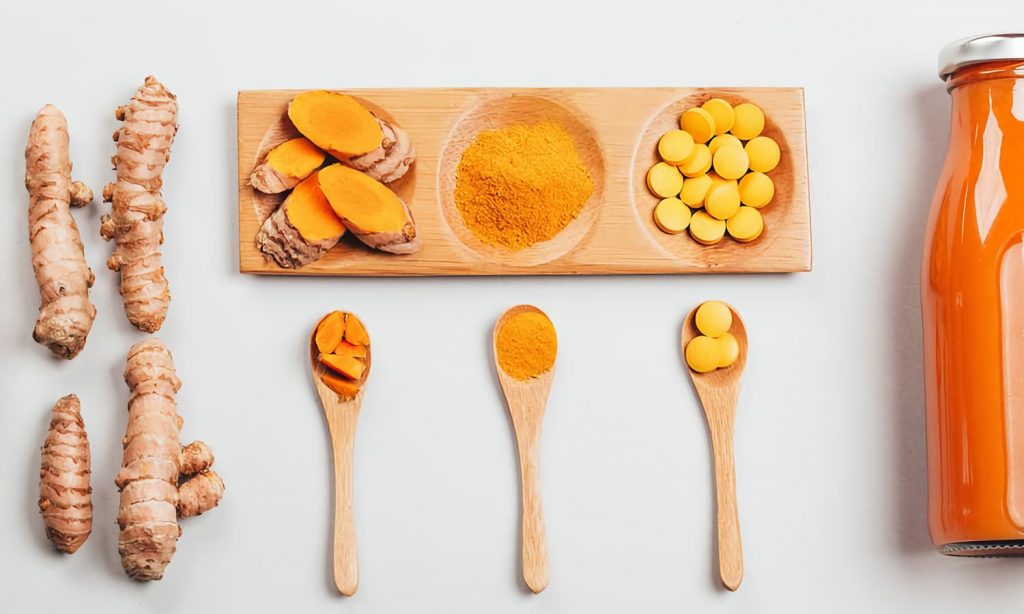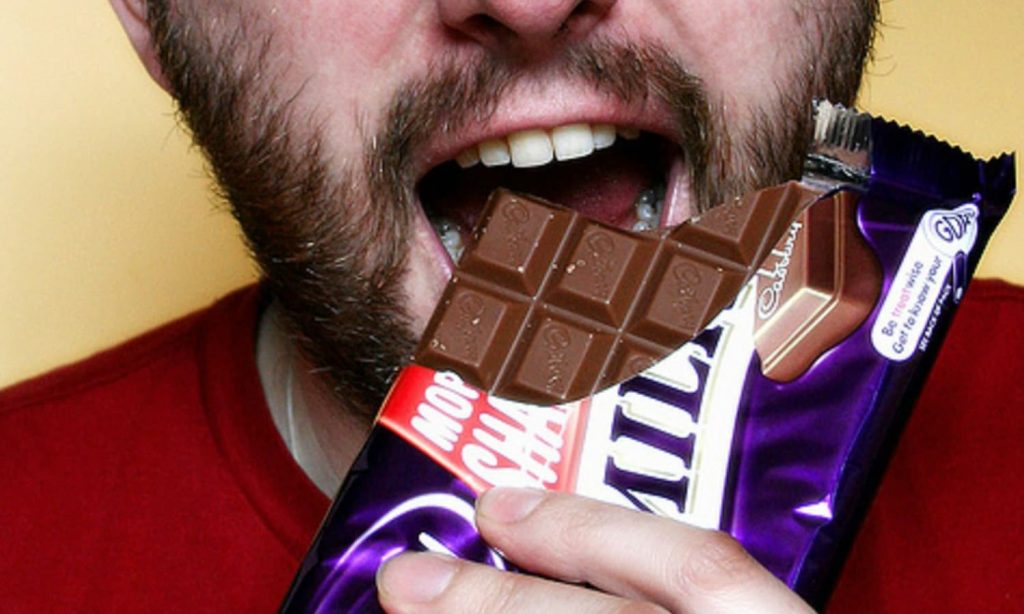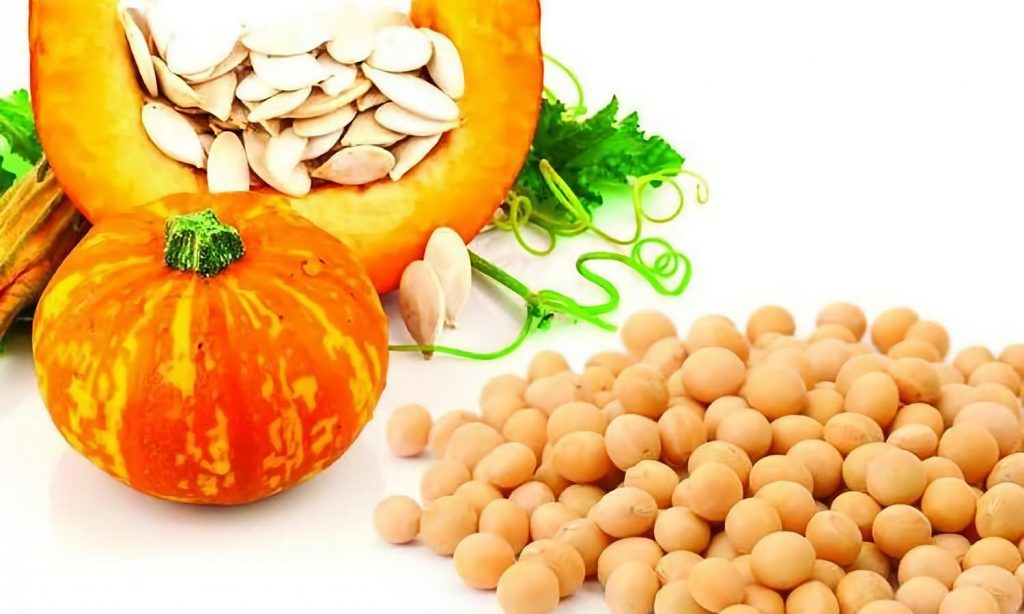When immersed in current healthy lifestyle trends, a picture may emerge that most product innovations are intended for the fair half of humanity. However, men also have special nutritional needs.
Men’s problems
Men’s health problems increase with age. Exactly the same as for women, but… The situation “I don’t feel well” in relation to men means that they seriously begin to think about it only when there is already “something very wrong” with their health.
Both doctors and sociologists note that men usually do not pay the attention to health that it deserves. And often they have absolutely no interest in what specialized products should be included in their daily life to improve healthy energy and productivity.
Today, many men are sedentary throughout the week and go for a run on the weekend mornings with the “best intentions” of catching up on lost time. They choose between running a few kilometers or cycling 20-25 kilometers. Or in the gym they start working hard on the treadmill. Or they even overdo it, lifting too much weight.
As a result, instead of vigor and improved well-being, aches in the body, pain in muscles and joints or microtraumas, sometimes serious, are added to ailments and poor sleep. At such moments, ingredients should appear to control such damage in particular, and men’s health in general.
Herbal nutraceuticals for men

Highly antioxidant fruits like berries and anti-inflammatory botanicals like turmeric and saffron are among the many options to help counteract weekend warrior symptoms. Curcumin, found in turmeric, is a particularly useful anti-inflammatory for regular knee pain and arthritis.
Among the new plants that are attracting attention is mango leaf extract. This is another natural component with anti-inflammatory properties. It is rich in a group of natural antioxidants called polyphenols. A recent placebo-controlled study found that mango leaf extract in combination with quercetin significantly reduced muscle pain and restored muscle performance in male athletes. Quercetin is found in red wine, cherries and other dark red fruits.
For joint health, the most effective anti-inflammatory agents are two of the most common and well-known components — Omega-3 and collagen. Omega has decades of research supporting the effectiveness of these fatty acids in protecting the heart, helping with nerve function, brain function, and improving many other health issues. A number of studies support the benefits of Omega-3 in reducing and even helping prevent arthritis, as well as easing swelling in joints and tendons.
Collagen is the building block of tendons and joints. It’s essential for maintaining soft tissue health for decades (after all, men get wrinkles too.) Additionally, a recent study of 180 physically active volunteers found that bioactive collagen peptides reduced joint pain in young adults. Along with vitamin C, collagen also helps maintain healthy skin.
Men love chocolate

Cocoa beans have so many health-promoting bioactive components that it is simply impossible to list them all in one article. The main phytochemical group in magic bean is a subset of polyphenols called flavonoids. These compounds have strong anti-inflammatory properties.
The most concentrated form of beneficial cocoa compounds is cocoa powder. There have been many studies done on dark chocolate with a high cocoa content (at least 70% in most studies). And they all confirm that while chocolate is a concentrated source of calories, it still has serious benefits beyond just the endorphins triggered by the melt-in-your-mouth experience.
Other benefits of chocolate include the presence of alkaloids, especially theobromine, theophylline, and caffeine. These alkaloids have been shown to significantly improve blood flow; help with easier breathing, wakefulness and extra energy; and even improve cognitive function.
Many studies on dark chocolate have shown that blood flow can be increased with a surprisingly small amount of this treat — just 7 grams per day.
Heart Guardian

Men are at higher risk of heart disease and heart attacks than women. And of course, chocolate isn’t the only ingredient that aims to help heart health. This is where the well-studied lipid coenzyme CoQ-10 comes into play.
Natural reproduction of CoQ-10 decreases noticeably with age, and this process begins at just “a little over thirty.” Unfortunately, many men in adulthood receive statin drugs prescribed to lower LDL cholesterol. And this further reduces the level of CoQ-10.
Plant and animal products contain CoQ-10: meat, fatty fish, nuts and some fruits, but for a real effect on blood quality, additional intake of Coenzyme Q-10 in special preparations may be necessary.
Another benefit of CoQ-10 is that it helps you achieve good athletic performance. Although there is limited research into the effects of CoQ-10 on athletic performance, one recent study has shown the ergogenic benefits of mildly stimulating the nervous system. The study was conducted among cyclist athletes. Those who took CoQ-10 at a dosage of 300 mg per day or more received benefits. They noticeably improved their strength and experienced greater power output, resulting in a more effective workout.
CoQ-10 is fat soluble, so a sealed form will be required if it is to be included in certain beverage preparations or low-fat snacks. One successful solution is the new CoQ-10 formula, which increases its bioavailability using a food product — a phytosome. Phytosomes are combinations of a biological ingredient with phospholipids, such as lecithin, which makes the ingredient more soluble.
CoQ-10 is safe. It provides all of the above-mentioned benefits for men with virtually no side effects, although its course intake must be supervised by a doctor. The suggested amount is usually 100-200 mg per day.
S*x. Just shh

Sexual health concerns men at any age. It is unlikely that you will find anyone who does not dream of maintaining maximum sexual activity throughout their life. And they are willing to commit to last mile support if it helps them maintain their fertility.
Oxidative stress is associated with male infertility. It accounts for 30-80% of infertility cases worldwide. Recent studies have shown that CoQ10 can be made more attractive to men for the following reason: The results demonstrate that taking CoQ10 in infertile men significantly improves both sperm count and motility. This is achieved at a widely available dose of 200 mg/day.
Interestingly, this study also compared the effects of CoQ10 with another antioxidant, selenium, at a dosage of 200 mcg/day. Selenium is an essential nutrient, and excellent sources include Brazil nuts and garlic. In fact, just one Brazil nut has about 70-90 mcg of selenium. By adding two Brazil nuts per day to the diet, a person can easily reach the required amount of 200 mcg to achieve the desired effect.
It can be difficult to know whether libido problems in men are a matter of physical function, a medical problem, or secondary to stress. But either way, the daily stresses of life are perhaps one of the most influential factors affecting their sexual function. Nutritionists note that ginseng, especially the Panax Ginseng variety (or Korean ginseng), is one of the main herbs studied to help counteract the negative effects of stress on the male body.
Below the belt

Once over 30, men often begin to focus on prostate problems. The risk of prostate cancer in men increases steadily with age. Some health experts say that once a man reaches 85 years of age, he has an almost 100% chance of developing prostate cancer. Therefore, you should remain vigilant. And it’s better to take preventive measures “while you’re young.”
When it comes to ingredients that can help with this process, it’s worth looking into Saw Palmetto Berry Extract (Serenoa Repens). Made from the fruit of the dwarf palm tree, which grows on the east coast of North America, there is overwhelming evidence of its positive effects on prostate health. Most research on saw palmetto has focused on lower urinary tract symptoms associated with benign prostatic hyperplasia (BPH), also known as an enlarged prostate.
There are other herbal ingredients for prostate health. For example, in a study involving patients already diagnosed with prostate cancer, results showed that 30 grams (one ounce) of flax seeds taken daily reduced the proliferation of prostate cancer cells.
A previous animal study found that flaxseed hulls helped reduce the size of an enlarged prostate. Lignin, a fiber that has significant antioxidant capacity and has also been shown to have antiviral and anticancer effects, was found in flax seeds in this study. Flax seeds are an excellent source of this component, as well as protein and Omega-3 fatty acids.
Another randomized study found that pumpkin seeds (but not pumpkin seed extract) reduced symptoms such as urinary frequency after 12 months of regular use. Additionally, these results were achieved with a modest culinary dose of 5 grams of seeds twice daily—an amount easily added to any snack or breakfast dish. Pumpkin seed allergies are rare, making it an ideal ingredient to include in any diet.
More herbs

A number of herbal ingredients targeting men’s health are gaining increasing attention. Palmetto is not the least of them. However, a procyanidin compound called pycnogenol, extracted from maritime pine (Pinus pinaster), is another effective treatment for BPH. The study results, published in the Italian scientific journal Minerva Medica, provided compelling evidence that pycnogenol can improve symptoms of BPH in healthy men, including reducing residual urine in the bladder.
According to the researchers’ results, subjects who received pycnogenol showed significant improvement in all their BPH symptoms compared to the other two groups who received a placebo or simply followed instructions not to sit for long periods of time and to do at least an hour of physical activity per day.
It is worth paying attention to fenugreek (Trigonella foenum-graecum), a common spice in South Asian and Middle Eastern cuisine. It has been receiving a lot of attention lately for helping to increase testosterone levels in men. This is particularly promising due to the ease of incorporating such spices into common foods that are in line with food trends.
Other herbal plants studied for scientific evidence of their support for men’s health, commonly associated with fertility and sperm production, include ashwagandha root (Withania somnifera) and maca root (Lepidium meyenii).
In addition to herbal and antioxidant vitamins and minerals, food and beverage developers have ample opportunity to focus on providing products that meet specific men’s health support needs. The range of such products can be very wide.
Eat healthy

Finally, men today are increasingly interested in nutritional supplements. Nearly three in four adult men (74%) report taking specialty dietary supplements, according to a survey conducted by the Council for Responsible Nutrition, a trade organization for the dietary supplement industry. This number increases to four in five (81%) among men aged 35-54.
Why do men take supplements? About 30% of men surveyed take them to support overall health. They are followed by those who want to maintain adequate energy levels, strengthen the immune system, fill nutritional gaps, and promote heart support and “healthy aging.”
Interestingly, among millennials, about 20% take supplements to support mental health.
What’s the best nutritional supplement for the average guy? Multivitamin. But herbs like turmeric, green tea, and probiotics are among the top 10 popular nutraceutical ingredients men crave to support their health. They are absolutely easy to include in food and drinks.
